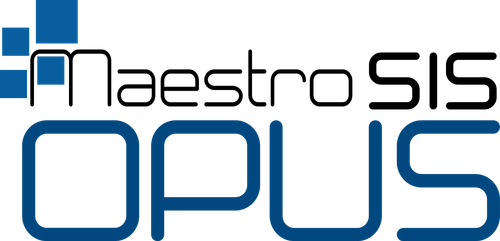Today’s trade schools have a number of unique requirements that fall outside of normal, traditional educational infrastructures, especially when it comes to managing certification programs. For trade schools, success is deeply tied to how well student progress, certifications and industry compliance are managed.
Flexible management software tailored specifically to the unique use cases of trade schools can help these institutions stay up-to-date with managing these tasks, not only from an administrative level, but also when it comes to delivering a quality experience for students. Here’s how:
How to Manage Various Certification Requirements
Each trade school certification track has its own unique requirements, all of which must be met. How can trade schools efficiently organize and manage these requirements, which may include hands-on training, standardized testing, and ongoing assessments?
Having a management system that is highly configurable and customizable gives administrators the tools they need to easily create unique requirements on a program-specific basis. This makes sure that every student meets the pertinent requirements without needing to be cross-referenced or manually tracked. With this type of automation, administrators can reduce their workload while keeping the school compliant with industry standards.
More Efficient Course Scheduling and Program Tracking
One of the most significant challenges that trade schools deal with is organizing programs that combine on-the-job training with classroom learning. As such, trade programs need scheduling that’s adaptable and dynamic to accommodate different types of learning including apprenticeships, hands-on labs and more.
With tailored management software, administrators can easily manage complex schedules, reducing overlap and making sure that all students get the practical experience they need to qualify for their certifications.
Improved Student and Faculty Communication
Schedules and course requirements can change quickly. By incorporating trade school-specific platforms, students and instructors alike can receive real-time updates, reminders and alerts about changes in not just schedules, but also assessment deadlines and certifications.
Having access to a variety of tracked communication tools helps reduce the chances of miscommunication, while helping students stay accountable and on track with their progress.
Tracking Skills and Competencies
Unlike traditional education structures, trade schools don’t just focus on academic grades. Trade schools give students the hands-on skills and competencies they need to enter the workforce with confidence. As such, having a dedicated management system is crucial. Such a system can track each student’s progress as they develop the understanding and knowledge they need to excel in their chosen path.
Including these competencies along with traditional grading systems not only helps students see their progress, but it also helps employers better understand the value of the certifications that the students have earned.
Simplified Compliance and Accreditation
Trade schools must often meet strict accreditation standards in order to validate their certifications. Having a tailored management system gives a single, centralized hub where administrators can monitor and manage different types of compliance, from tracking student clock hours to generating reports for various accreditation bodies.
This customized feature also helps simplify audits and reduce the risk of non-compliance, saving thousands of hours that would otherwise be spent gathering data or juggling multiple spreadsheets.
A Competitive Edge in Job Placement
The underlying goal of any trade school is to prepare their students for immediate employment in diverse sectors and industries. Tailored management solutions can be created that connect students with various local opportunities, showcasing their certifications and the courses they’ve completed.
Beyond these features, automated job placement tracking can also see the student’s employment status once they graduate, helping to add validity to the program’s effectiveness in preparing graduates for new careers in their chosen trade.
Custom Reports and Data to Drive Decisions
Today’s trade schools thrive on data, and no data is more crucial than real-time information that reflects the uniqueness of the various certification programs offered by the school. Using tailored software helps schools generate reports on a variety of facets, including:
- Course completion rates
- Certification success
- Employment placement
- Completion timeframes
- Demographics breakdown
- And much more
Having these types of big picture and granular insights can help trade school administrators better understand and improve upon their programs while staying in step with industry demands and future growth.
Getting Started with a Custom Management Software Designed for Trade Schools
Investing in tailored management software for trade schools means investing in student success as well as long-term industrial growth. Together with local and national industries, the need for trade school professionals has never been greater.
The manufacturing sector alone could face a shortage of 1.9 million jobs over the next decade, while healthcare is projected to grow 18% by 2028, much faster than the average for all occupations.
For this reason, now is the time to choose a system that’s designed to handle the in-depth needs of trade school certification. Tailored management software is the best way to give students a comprehensive, industry-aligned roadmap, guiding them from enrollment through certification and into employment.
How Maestro SIS Can Help
Maestro SIS was built by educators, for educators. It’s a powerful, purpose-driven tool that can adapt to meet the ever-changing needs of trade schools and certification programs. Here’s how:
- Automatic Certification Tracking – Maestro SIS automatically records each student’s progress toward certification-specific benchmarks, including required hours, completed assessments, and more.
- Compliance Monitoring with Industry Standards – For those trade schools that need to adhere to specific industry requirements or accreditation, Maestro SIS allows administrators to receive automated reminders about upcoming audits and generate reports that demonstrate compliance.
- Custom Program Configurations – Unlike more generalized SIS solutions, Maestro can handle the different structures of trade programs, from flexible start dates to customizable tracks. Each trade school can configure the program to fit its own unique requirements.
- Dynamic Scheduling – Trade schools often combine classroom instruction with on-the-job training. Maestro SIS allows for the organization of flexible scheduling options that adapt well to a blended model. Students can track their progress while administrators can easily manage schedules without risking errors or miscommunications.
- Integrations with Single Sign On to third party platforms – Trade Schools that can offer online options when face to face options are not feasible allow for expanded appeal to help increase student enrollment. Additionally, integrations to other platforms facilitate and expedite processes, resulting in increased satisfaction for both students and staff.
Learn more about these and the many other features that Maestro SIS brings to trade school management by contacting us today.


